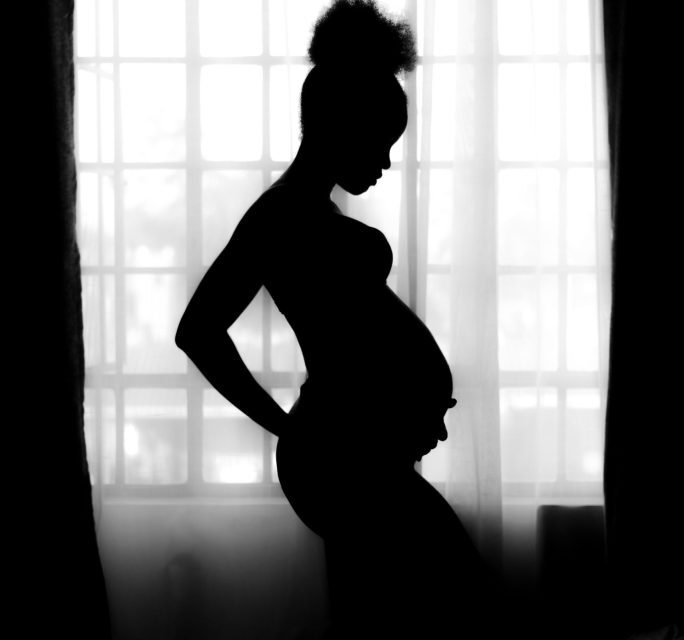By Mackenzie Williams
AFRO Intern
Mwilliams@afro.com
On July 25, 2022, Resolution 718 was submitted to the senate of the United States declaring the week of July 19-25 as Black Maternal Mental Health Week.
The reason? According to the document, “1 in 8 women and 1 in 6 Black women will suffer from a maternal mental health condition at some point during their lifetimes.”

In 2024, the week is used to “raise public awareness and understanding around maternal mental health (MMH) conditions and their disproportionate impact on Black women and families.”
The Shades of Blue Project, founded in 2013 by Kay Matthews, holds a Black MMH summit on an annual basis in efforts to bring together “healthcare professionals, mental health experts, advocates and community members to foster discussions, share research, and promote strategies that specifically target the improvement of mental health outcomes for Black mothers.”
The AFRO spoke with experts from the 2024 summit being held in Texas to further understand the importance of mental health when it comes to Black maternity.
“Nobody was listening to Black women, so I started listening to Black women,” Shayla Brown told the AFRO.
Brown is a mom, long term doula, panelist for the 2024 Shades of Blue Project Black Maternal Health Summit and a digital storyteller. Since 2014, she has been fighting to keep traditional birth practices alive for years– long before the conversation of Black maternal health and mental health took hold.
She told the AFRO Black women have always been on the scene when it comes to birthing babies.
“Black midwives were everyone’s midwives before we had this standardized medical system,” she said. “Black midwives were the ones who trained the first OBGYN Physicians.”
According to the National Library of Medicine,“By the early 1920s the terms “granny,” and “granny-midwife” were synonymous with Black midwives in the rural South. In Northeastern cities, midwives were largely displaced by physicians working in hospitals. Many women considered hospital births a “modern” and “advanced” form of delivery.”
Brown said, in her experience, most pregnancy issues begin with a lack of mental health support. This can stress the body or cause larger issues that are compounded by other traumas.

“If we are afraid or holding onto trauma, then [the] body won’t perform like it is supposed to and it’s simply because you [are] sad,” said Brown. “It’s simply because you [are] lonely.”
Mindset is key. Brown said she ultimately wants to convey to Black women that pregnancy is an enjoyable experience –not a scary one.
“I want to get across ultimately that birth is innately beautiful, natural and it’s nothing to be afraid of.”
Dr. Ana’Neicia Williams, DSW, LCSW, PMH-C, is a licensed clinical social worker with a specialty in prenatal mood and anxiety disorders. She is also an ambassador for the Shades of Blue Project this year.
“One thing I center in my research is sister circles,” she stated, adding that the resource can serve as a means of creating cultural support for Black women. Williams said there is a lot of “shame” on the path of motherhood and “individuals believe they are the only ones going through something.”
Sister circles focus on “creating a space that is welcoming and safe but is also rooted in Afrocentric practices.”
Williams said that Black women face racialized stigmas, which can lead to negative experiences during pregnancy.
“There are so many things that are interconnected for Black women and what they are facing, just to raise a child in America,” she said.
According to a 2021 Maternal Mental Health Leadership Alliance Fact sheet, “the cumulative effect of systemic and interpersonal racism takes a toll on the physical and emotional health of Black people. Stress, anxiety and fear all increase the likelihood of developing MMH conditions.”
The pressure of social stigma often encourages Black women to keep their problems a secret, to avoid being seen as weak and upholding the strong “Black women” trope.
“I don’t want this to be a week or a month,” said Williams, speaking on the short time allotted to the issue each July. “We have to be intentional in providing the care– and the care doesn’t just have to be on the providers. Care can be in your community.”
To improve mental health during and after pregnancy, experts from the Maternal Mental Health Alliance (MMMA), suggest the following:
- Implement a routine. According to the MMMA, “something that can help sustain or improve mood can be a simple, flexible routine that offers a bit of structure and reassurance.” There are a variety of ways to do this, including virtual apps that help track daily schedules when pen and paper don’t work.
Mothers are encouraged to remember that they can make routines for themselves that work in tandem with routines being created for children. Routines can address mental health needs, such as journaling on a daily basis to relieve anxiety. However, the goals should be realistic and the MMMA asks mothers to remember “it is okay if your plans for an activity or even your whole day have to change or don’t work out. Try your best to be flexible and be kind to yourself.”
- Don’t let negative thoughts win! The MMMA suggests identifying “specific thoughts that may be making you feel low. Look for what’s going through your mind while you are feeling anxious or upset. Check whether these thoughts are indeed accurate, healthy and compassionate for you. If not, try to replace these thoughts with more accurate, healthy and compassionate ones.”
- Spend time with your child. While new mothers might be anxious about activities they should and shouldn’t do with their newborn, MMMA experts want to keep one thing at the forefront of the conversation: “Simply being with your baby and involving it in your daily activities is enough.”
- Take time to unplug. Resources available on the internet and on social media platforms can certainly be helpful, however, mothers are reminded to take technology breaks to combat symptoms of anxiety and depression. “The constant flow of news and social media can make us all feel a little overwhelmed. This potential excess of information may be causing you additional worry and anxiety,” reports the MMMA. “If you feel overwhelmed try to only access the information you and your family need to stay informed. This could involve you setting specific times to go online to seek information, or only watching certain news programmes.”
For more information on Black Maternal Mental Health week and the Shades of Blue Project, please visit shadesofblueproject.org.
The post Experts speak during Black Maternal Mental Health Week appeared first on AFRO American Newspapers.










